Publications
Articles, publications, books, tools and multimedia features from the U.S. Institute of Peace provide the latest news, analysis, research findings, practitioner guides and reports, all related to the conflict zones and issues that are at the center of the Institute’s work to prevent and reduce violent conflict.
Question And Answer
Whither NATO at 75?
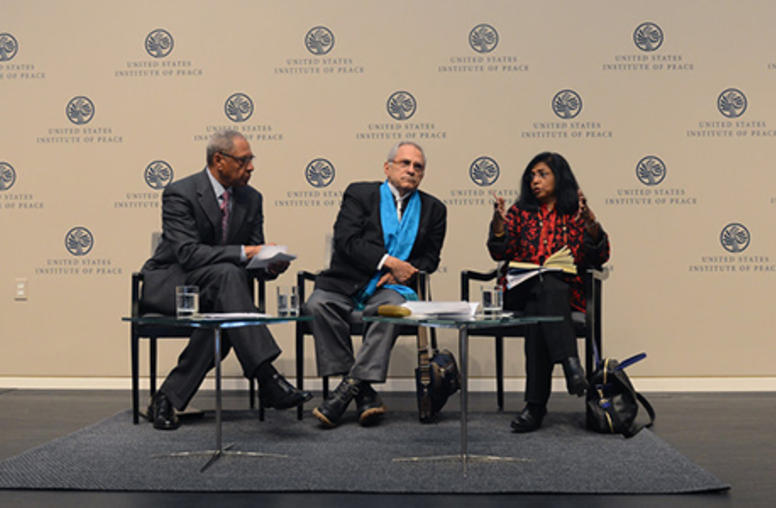
Deputy Secretary Blinken Urges 'Bold' U.N. Peacekeeping Review
U.S. Deputy Secretary of State Antony Blinken yesterday urged a high-level panel reviewing United Nations peace operations to conduct a rigorous assessment that will challenge member nations to ensure peacekeepers have the flexibility, capabilities and the political backing they need to function more effectively in increasingly complex conflict zones.
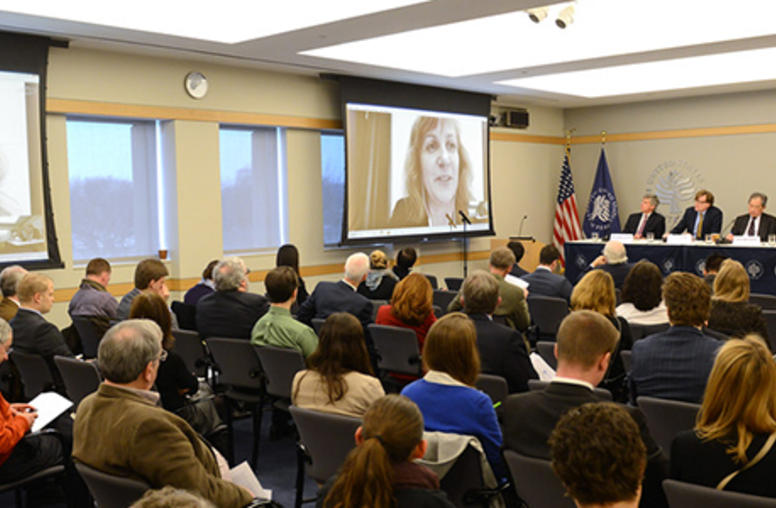
Even Amid War, Ukraine Must Confront Corruption
As Ukraine battles Russian-backed forces in its eastern Donbas region, it must not let the war deter it from fighting the country’s endemic corruption, according to a panel of experts who spoke at the U.S. Institute of Peace on March 3. Indeed, the existential threat posed by Russia’s aggression can serve as a stimulus for the Ukrainian government to dismantle the systems of corruption that have dominated governance since independence, the specialists said.
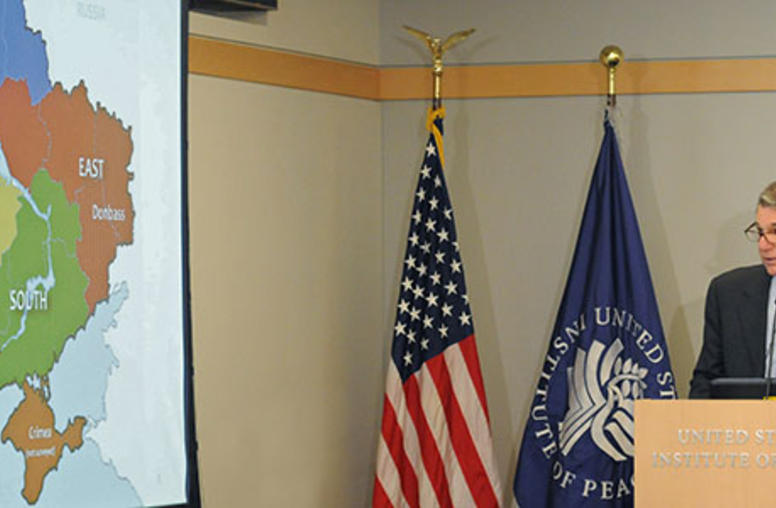
Ukrainians Broadly Reject Russian Actions and Influence, Poll Shows
A new survey of Ukrainians shows a broad majority, including in the East, reject the boldest moves against their country, belying notions that Russian President Vladimir Putin may be winning the fight through propaganda and military aid to separatists.
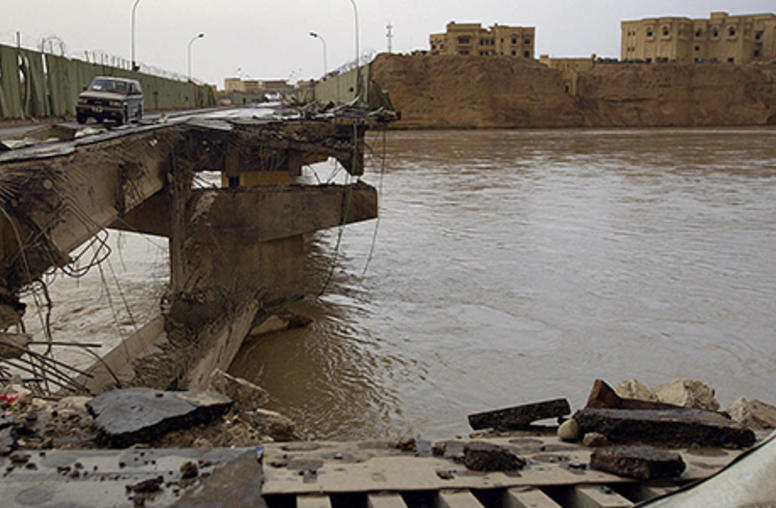
Q&A on Iraq: 'Standing on Quicksand'
Iraq faces an array of obstacles this year, as the government of Prime Minister Haider al-Abadi struggles to unify competing factions and confronts the brutal militants of the so-called “Islamic State” militarily. Abadi must navigate significant economic challenges and massive displacements of citizens because of the fighting, while struggling to meet terms set out by the country’s Kurdish Regional Government in the north and the Sunni coalition who joined his government in Baghdad.
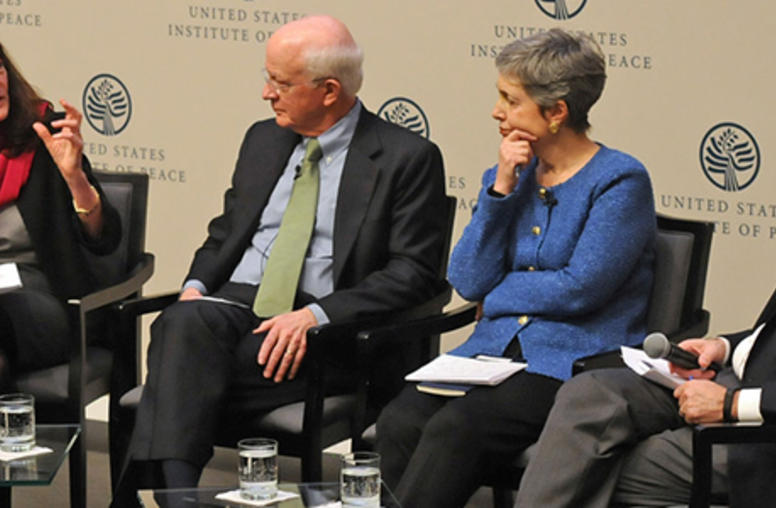
In a World of Syria and Ukraine, How Can Conflict Managers Adapt?
Today’s global political realities of chaos and violent conflict are well-captured by the declaration, “The center cannot hold.” It’s the title of the first chapter in a new book, Managing Conflict in A World Adrift, that dissects the shifts in international security and the tense debates about how to adapt. The trends were the subject of a recent discussion at USIP that featured co-editors Chester A. Crocker and Pamela Aall and expert authors, including an award winning marine ecologist.
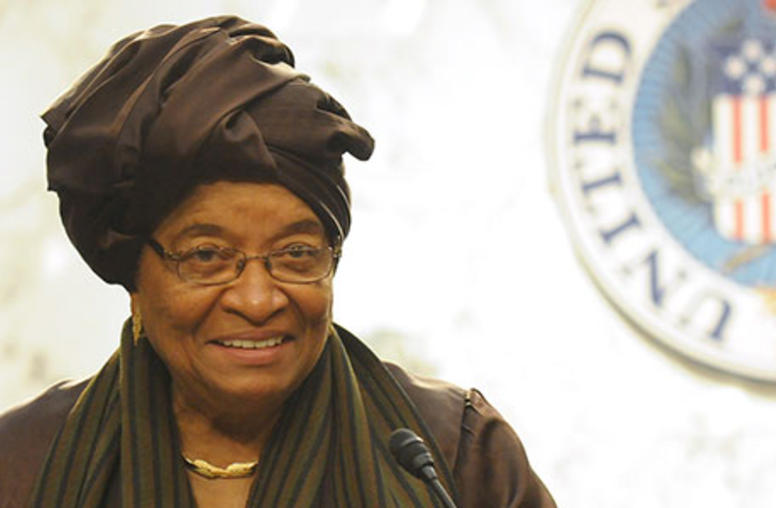
Liberia’s President Thanks U.S. for Helping Control Ebola Epidemic
In August, West Africa’s outbreak of the deadly Ebola virus exploded into Liberia’s capital, filling its hospitals beyond capacity and killing many of the city’s already-too-few doctors and nurses. With her government struggling and Liberians dying in Monrovia’s streets, President Ellen Johnson Sirleaf placed urgent calls to both Democratic and Republican members of Congress, “who I awakened at night,” she recalled today.
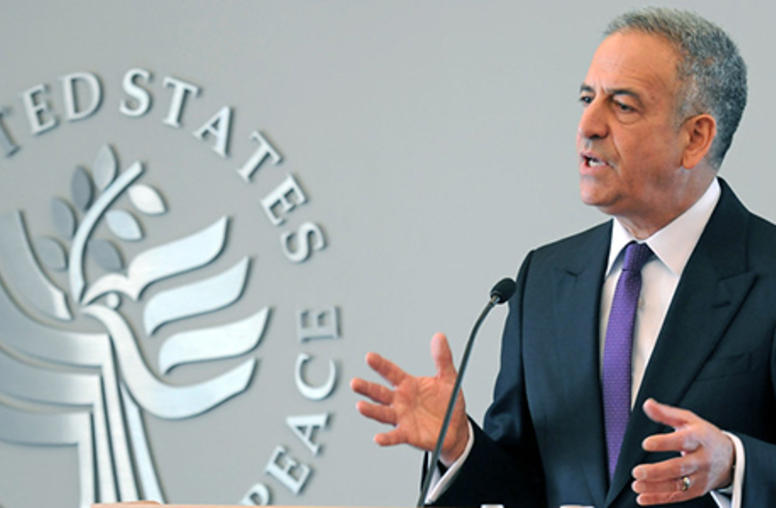
Feingold Presses Three African States on Elections
Russell Feingold, the U.S. Special Envoy working to stabilize Africa’s Great Lakes region, urged Rwanda, Burundi and the Democratic Republic of Congo (DRC) to hold fair, democratic elections as a key step to bringing peace to the region. And he pressed the DRC to launch a promised military offensive in the country’s East against an ethnic Hutu militia that includes fighters who participated in the anti-Tutsi genocide in Rwanda 21 years ago.
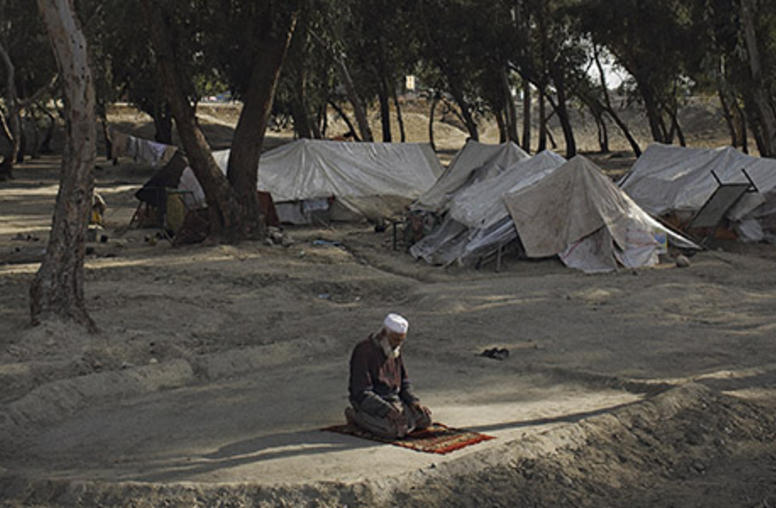
Q&A: Pakistan in the Shifting Neighborhood of 2015
A public backlash against the Pakistani Taliban after a December attack in northwestern Pakistan that killed 134 children has raised hopes that the country’s government and military might finally muster the political will to tackle terrorism and violent extremism. U.S. Institute of Peace Director of Pakistan and South Asia Programs Moeed Yusuf considers the odds in the face of Pakistan’s deteriorating relations with India on the eastern border and a new, though divided government in a still-s...
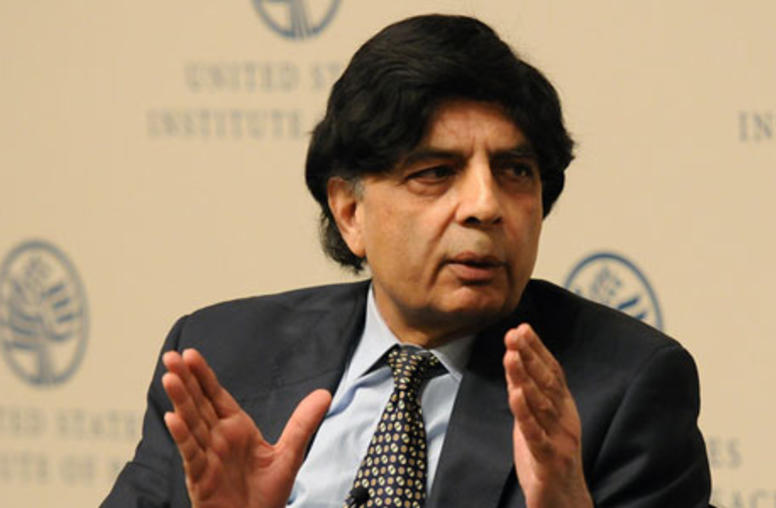
Pakistan’s Interior Minister Outlines New Anti-Terror Plan
The Pakistani Taliban’s killing of more than 150 people at the Army Public School in Peshawar in December spurred the Pakistani government to draft a new National Action Plan against terrorism. A primary architect of that plan, Interior Minister Chaudhry Nisar Ali Khan, discussed his country’s terrorism challenge on Feb. 18 in his first public appearance in Washington since taking office in 2013.

How Not to Fight a Fanatic
The United States needs to take a wider view of whom it works with in its war against religious extremists.